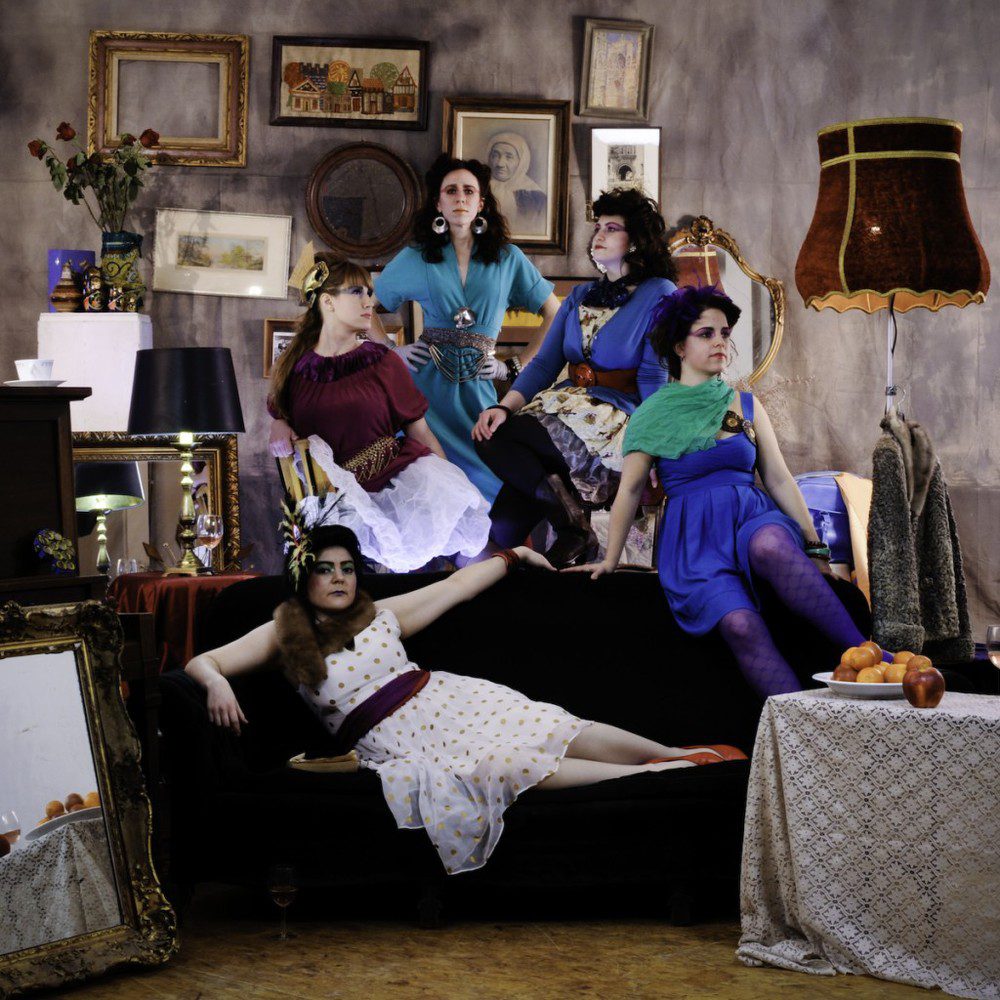
With the release of their debut album Cathedral City, classical/chamber pop ensemble Victoire established themselves as musicians on the edge of genre and description. The New York-based all female sextet brings clarinet and synths to their basic piano trio formula, creating a full-body musical soundtrack that’s as prickly and precarious as it is rich. Two years after Cathedral City, Victoire has premiered a new track and video off a new album that will drop later this year.
In “A Thousand Tongues,” band member Lorna Dune has reworked a track of the same name composed by frontwoman and keyboardist Missy Mazzoli. Expanding on Mazzoli’s dreamy chamber pop fantasy, Dune’s remix stretches out the original track, affording its spooky spaciousness even more room to develop and echo. The track takes as its foundation, a swirling blend of synths, then adds the song’s original instrumental lines, one by one, back into the music. It isn’t until three minutes into the song that Deidre Muro’s (Savoir Adore) voice comes in, further establishing the sense that, in this piece, all instruments carry equal weight, and the voice is as strange and bendable as any of the other instruments contributing to the track’s development. The mood shifts, nearly imperceptibly, back and forth from nightmarish to heavenly over the seven minutes of the song’s course, but there’s a spectacularly sunshine-y moment when the vocal track comes in, marred only by some broken-down crackling in the strings. It’s a clear evocation of an imperfect and beautifully broken scene, so fully developed that every thread of the music vibrates with life.
To accompany the remix, Dune spliced black-and-white sections of the grainy 1967 film “Solo,” by Mauricio Kegal, into a narrative parallel to the music’s progression. The visual theatrics create a stark and memorable landscape for this track. A wildly white-haired conductor directs a symphony alone in a hall of mirrors, surveys a smoke-filled landscape, and parades up flights of stairs, pausing to gaze at statues of angels. It’s a nightmarish fantasy with the lavishness of a wish fulfillment dream, and the isolation of the visual translates seamlessly to the spaciousness and forlorn luxury of “A Thousand Tongues.”
Watch the video below:




